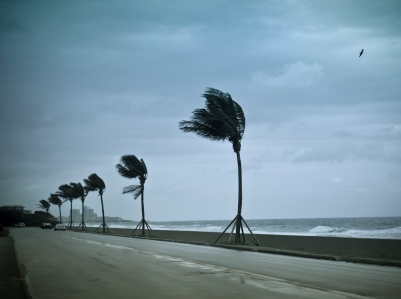
Summer Weather Tips: Preparing for Severe Storms and Hurricanes
Atlantic Hurricane Season Starts June 1, 2018
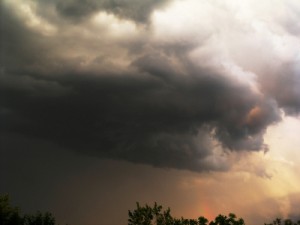 Did you know that Friday marks the official start of the summer storm and hurricane season? The Atlantic Hurricane season lasts from June 1 to November 30. The Montgomery County Office of Emergency Management and Homeland Security (OEMHS) joins the Maryland Emergency Management Agency (MEMA) and the National Weather Service (NWS) in urging residents to take necessary precautions to stay safe.
Did you know that Friday marks the official start of the summer storm and hurricane season? The Atlantic Hurricane season lasts from June 1 to November 30. The Montgomery County Office of Emergency Management and Homeland Security (OEMHS) joins the Maryland Emergency Management Agency (MEMA) and the National Weather Service (NWS) in urging residents to take necessary precautions to stay safe.
County residents are encouraged to sign up for Alert Montgomery, Montgomery County’s emergency warning system, to receive important notifications of weather watches and warnings, along with information about road and facility closures, traffic signal outages and other emergency information.
Go to https://alert.montgomerycountymd.gov to sign up for alerts that can be sent to land-line phones, cell phones or other mobile devices.
A Hurricane “Watch” is issued if hurricane conditions are possible within the specified area. Watches are typically issued 48 hours in advance of the anticipated onset of tropical-storm-force winds. Residents are advised to prepare their homes and businesses; review an evacuation plan and listen closely for further condition updates and instructions. A Hurricane “Warning” is issued when hurricane conditions are expected within the specified area. Warnings are typically issued 36 hours in advance of the anticipated onset of tropical-storm-force winds. When a Warning has been issued residents should complete storm preparations and seek shelter or evacuate if instructed to do so.
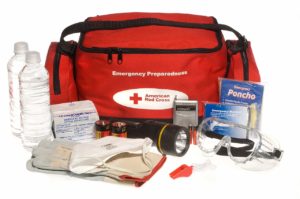 Preparing for the Storm
Preparing for the Storm
- Build an Emergency Supply Kit, which includes such items as non-perishable food, water, a battery-powered or hand-crank radio, extra flashlights and batteries.
- Make a Family Emergency Plan. Your family may not be together when disaster strikes, so it is important to know how you will contact one another, how you will get back together and what you will do in case of an emergency.
- Monitor the media (radio, TV or internet) – Be aware of storms which could impact your area.
- Know how you will be warned in an emergency…Alert Montgomery, (NOAA Weather radios with a tone alert are a good option).
- Ensure your home is ready. Throughout the year, cut down or trim trees that may be in danger of falling on your home. Just prior to a storm, bring in or secure outdoor items that could become projectiles in high wind.
- Consider buying surge protectors to protect your home appliances, and electronic devices.
- Turn the refrigerator and freezer to the coldest setting in anticipation of a power outage. Open the door only when necessary and close quickly. Frozen food in a half-full freezer should remain safe for up to 24 hours, and in a full freezer, up to 48 hours.
- Fully charge your cell phone and keep a car charger in your vehicles.
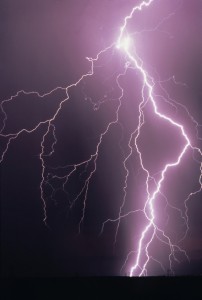 During the Storm
During the Storm
- When thunder roars, go indoors.
- Follow instructions and emergency advice from County officials or heed shelter or evacuation requests made through announcements on radio/television.
- Keep an eye on the sky. Look for darkening skies, flashes of light or increasing wind. Listen for the sound of thunder. If you can hear thunder, you are close enough to be struck by lightning.
- Blowing debris or the sound of an approaching tornado may alert you. Tornado danger signs include a dark, almost greenish sky; large hail; a large, dark, low-lying cloud or a loud roar, similar to a freight train.
- Gather family members, bring pets indoors and have your emergency supply kit ready.
- Close outside doors and window blinds, shades or curtains. Close all interior doors. Stay away from doors, windows and exterior walls. Stay in a shelter location (small interior room, closet, or hallway on the lowest level) until the danger has passed.
- During lightning, do not use wired telephones, touch electrical appliances or use running water. Cordless or cellular telephones are safe to use.
- During a power outage use flashlights and battery-powered lanterns for light. Avoid using candles which pose a fire risk.
- Ensure a supply of water for sanitary purposes such as personal cleaning and flushing toilets. Fill a bathtub or other large container with the water. This is particularly important for those whose water runs off of an electrical system.
- If your residence could flood, store valuable and personal papers in a waterproof container.
- Do not walk through flowing water. Drowning is the number one cause of flood deaths. Six inches of swiftly moving water can knock you off your feet.
- “Turn Around, Don’t Drown.” Do not attempt to drive through a flooded road – you can become stranded or trapped. Six inches of water can cause loss of vehicle control and stalling. Twenty-four inches of rushing water will carry away most vehicles, even SUVs and trucks.
- If boating or swimming, get to land and find a sturdy, grounded shelter or vehicle immediately.
- Stay indoors and limit travel only to absolutely necessary trips. Listen to radio/television for updates.
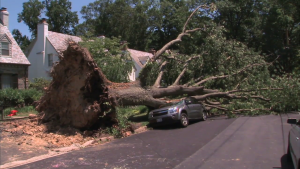 After the Storm
After the Storm
- Stay off roads to allow emergency crews to clear roads and provide emergency assistance.
- Help injured or trapped persons. Do not attempt to move seriously injured persons unless they are in immediate danger of death or further injury.
- Use the telephone only for emergencies.
- Use care around downed power lines. Assume a downed wire is a live wire.
- Watch out for overhead hazards such as broken tree limbs, wires and other debris.
- Avoid walking into flood waters. Six inches of fast-moving water can knock you down. The water may be contaminated by oil, gasoline or raw sewerage, contain downed power lines or animals.
- Look for hazards such as broken/leaking gas lines, damaged sewage systems, flooded electrical circuits, submerged appliances and structural damage. Leave the area if you smell gas or chemical fumes.
- Clean everything that gets wet. For food, medicines and cosmetics; when in doubt, throw it out.
- Make sure backup generators are well ventilated. Never use grills, generators or camping stoves indoors.
- Call 3-1-1 (or 240-777-0311 from a location outside of Montgomery County) to report downed trees on public property and for help with County services; or go to MC311.com. If wires are involved with the downed tree, if anyone is trapped, or the tree is blocking a roadway, call 9-1-1.
For additional emergency information and planning resources (available in Spanish, French, Chinese, and Amharic), visit the Office of Emergency Management and Homeland Security website at:www.montgomerycountymd.gov/oemhs.

Engage us on Facebook
Follow us on Twitter
Tweets by @mymcmedia